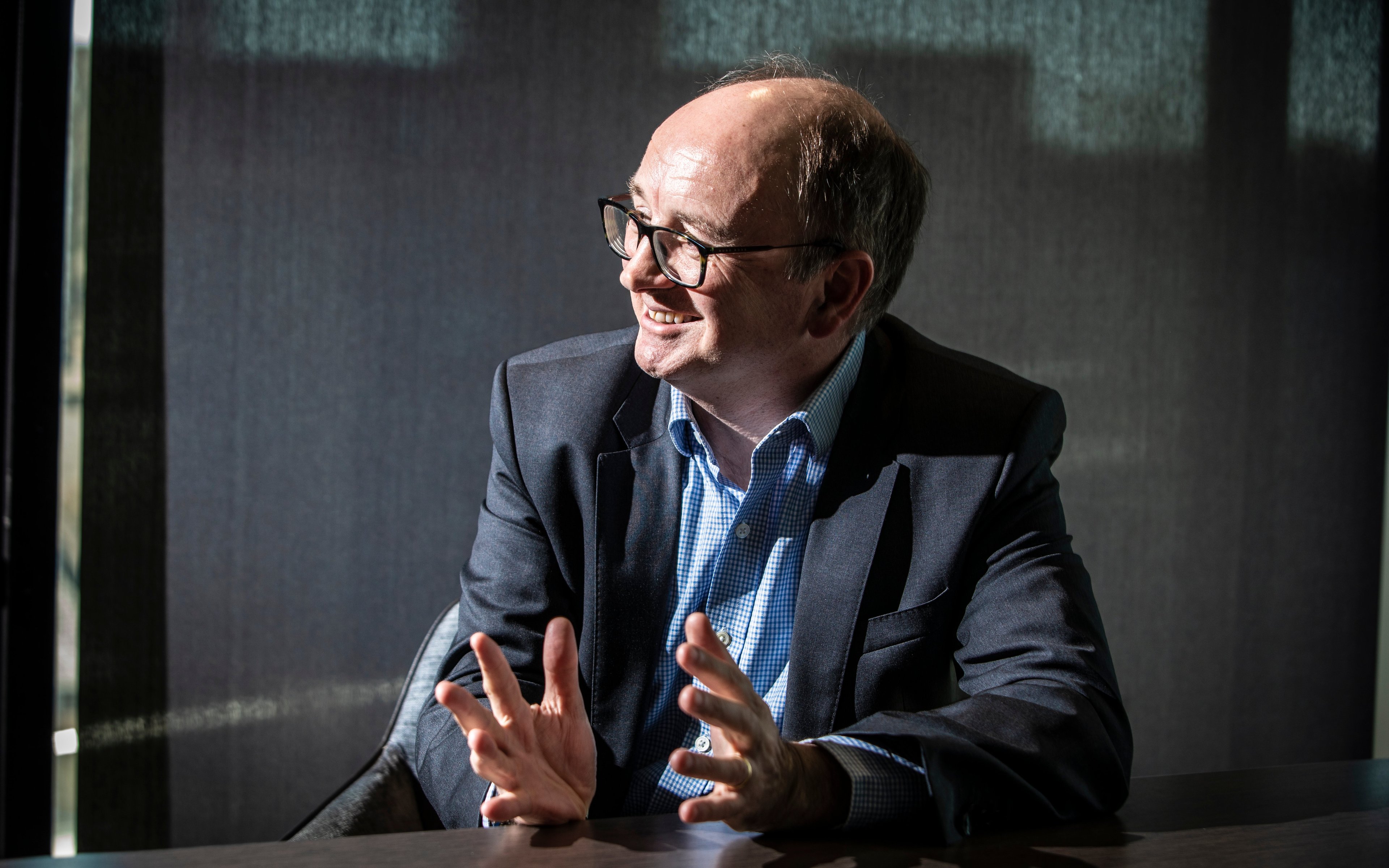
Please remember that the value of an investment can fall and you may not get back the amount invested.
Most of us think of the Amazon Prime subscription service as a wonderful retention tool, bringing the best customers back again and again. That wasn’t always obvious. When Prime launched in 2005, Amazon was barely profitable. Yet here was a programme offering two-day delivery on unlimited items that suddenly turned the firm’s most profitable customers into its biggest loss-makers.
Along with many other lessons since Baillie Gifford first invested that year, Amazon taught us a lot about the importance of founder-leaders. Jeff Bezos’s ability to focus on whatever created the most long-term value allowed him to use his authority as founder to make counterintuitive decisions.
Over nearly three decades, this allowed him to push through change despite the opposition of many around him. His successor, Andy Jassy, is matching that power, thanks to having led its Amazon Web Services cloud computing division since its inception.
Looking for the long-term thinkers
For us, the critical point is to find leaders running businesses for the long term who can escape the market’s focus on earnings over the next one or two quarters. Doing so lets them make decisions in investors’ best long-term interests.
Without our intending it – or even initially tracking it – the founder-leader factor has grown in importance within our investment thinking. Today, we invest in many companies led by founders, including Peter Carlsson at battery maker Northvolt, Marcos Galperin at ecommerce and payment giant MercadoLibre, and the Collison brothers at payment processor Stripe.
Is there such a thing as an archetypical founder? Not exactly. There are different nuances in different parts of the world. But whether it’s in the US, Europe or China, we see the same sense of personal ownership and responsibility for what happens in the business, an urgency to get things done and an unwillingness to let bureaucracy get in the way of the company’s mission.

It’s hard for professional managers to match that sense of priority and to make transformative decisions that push the whole organisation to change. Not least because their incentives are often a performance bonus tied to earnings.
You can do all sorts of things to a business to boost short-term performance, including cutting your spending on research and development and marketing. But that can be very damaging to long-run outcomes. We like management teams that invest in the brand and optimise performance over a 10-year time horizon.
Getting it done
A strong founder-leader can take radical decisions to make sure change happens. This is important in a market environment that’s constantly shifting, both in terms of technology and consumer tastes. Against that background, stasis can be very damaging. Ambition and adaptability become vital.
Take Shopify: the ecommerce software provider flourished during the Covid pandemic by helping small businesses compete against larger retailers. The firm then moved into delivery and logistics, a lower-margin business that the founder-leader Tobi Lütke described as a ‘side quest’ to its main mission.
Shopify has been loss-making for most of its history, but rising interest rates meant the cost of building and connecting logistics infrastructure increased. Adapting to this changing business environment, Lütke abruptly switched course in May 2023, selling Shopify Logistics and cutting the size of the business by 20 per cent.
The company moved towards generating more cash when borrowing costs were rising. It’s an example of a founder taking tough decisions to give the company flexibility to compete in a very different environment.
Continuity counts
In the past 20 years, it’s become more common for founders to lead their firms for longer. Part of the reason is that financial backers have become less likely to push them out to bring in the ‘grownups’, but it’s also because companies have grown more quickly under their creators’ tenure.
We like that they have skin in the game financially. This forces them to think about long-term value appreciation as a key barometer of success, aligning their goals with ours.
Founders make an impact at every stage of the company’s development, and often a business’s very existence comes down to its creator matching the strength of his or her idea with the will and ability to make it happen.
Typically, the founder factor becomes less important as the business approaches maturity, when you’re less likely to see such radical shifts in the product portfolio or the pace of change.
The prime example here is Apple. Since Steve Jobs died and Tim Cook took over, we arguably haven’t seen products that have had the impact of the iPhone. But in terms of dollars of value created, it’s been much larger under Cook than Jobs. So it’s not that businesses can’t continue to be successful after the founder goes, it’s just that they sometimes become less radical.
Alphabet is in the same category. Compared with co-founder Larry Page, Sundar Pichai hasn’t done anything particularly revolutionary, but the company continues to grow and is one of the biggest, most profitable businesses on earth.
No magic bullet
I should stress that having a founder-leader is no guarantee of success. There are plenty who haven’t worked out. The interplay between a business and its founders can often be problematic. Some founders are pushed out, and some businesses simply outgrow them.
You see that particularly in enterprise software – cloud-based applications that help businesses become more efficient. The founder might have built a useful tool or product, but the challenge in scaling that kind of business is going out and selling it to big organisations.
That involves a very different skillset around managing a sales force, managing relationships and all sorts of the more boring things that enterprises are interested in. So it may make perfect sense to bring in a different chief executive.
We look for companies that are changing their industries, providing goods and services in new ways and answering unmet needs. These are not normal companies. When you have a mission like this, having talented individuals at the helm has been utterly crucial.
We’re not in thrall to the ‘cult of the founder’. After all, we've long admired the Dutch firm ASML, which makes the machines that manufacture semiconductor chips. It’s not founder-led.
Nor do we see the continued presence of a business’s original leader as a panacea to the many problems that growth businesses face. It’s simply that we see businesses that are founder-led playing an outsized part in creating the great companies of the future.
Important information
The views expressed should not be considered as advice or a recommendation to buy, sell or hold a particular investment. They reflect opinion and should not be taken as statements of fact nor should any reliance be placed on them when making investment decisions.
This communication contains information on investments which does not constitute independent research. Accordingly, it is not subject to the protections afforded to independent research, but is classified as advertising under Art 68 of the Financial Services Act (‘FinSA’) and Baillie Gifford and its staff may have dealt in the investments concerned.
All information is sourced from Baillie Gifford & Co and is current unless otherwise stated.
The images used in this communication are for illustrative purposes only.
Baillie Gifford & Co and Baillie Gifford & Co Limited are authorised and regulated by the Financial Conduct Authority (FCA). Baillie Gifford & Co Limited is an Authorised Corporate Director of OEICs.
Baillie Gifford Overseas Limited provides investment management and advisory services to non-UK Professional/Institutional clients only. Baillie Gifford Overseas Limited is wholly owned by Baillie Gifford & Co.
Baillie Gifford & Co and Baillie Gifford Overseas Limited are authorised and regulated by the FCA in the UK.
Persons resident or domiciled outside the UK should consult with their professional advisers as to whether they require any governmental or other consents in order to enable them to invest, and with their tax advisers for advice relevant to their own particular circumstances.
Financial Intermediaries
This communication is suitable for use of financial intermediaries. Financial intermediaries are solely responsible for any further distribution and Baillie Gifford takes no responsibility for the reliance on this document by any other person who did not receive this document directly from Baillie Gifford.
Europe
Baillie Gifford Investment Management (Europe) Limited provides investment management and advisory services to European (excluding UK) clients. It was incorporated in Ireland in May 2018. Baillie Gifford Investment Management (Europe) Limited is authorised by the Central Bank of Ireland as an AIFM under the AIFM Regulations and as a UCITS management company under the UCITS Regulation. Baillie Gifford Investment Management (Europe) Limited is also authorised in accordance with Regulation 7 of the AIFM Regulations, to provide management of portfolios of investments, including Individual Portfolio Management (‘IPM’) and Non-Core Services. Baillie Gifford Investment Management (Europe) Limited has been appointed as UCITS management company to the following UCITS umbrella company; Baillie Gifford Worldwide Funds plc. Through passporting it has established Baillie Gifford Investment Management (Europe) Limited (Frankfurt Branch) to market its investment management and advisory services and distribute Baillie Gifford Worldwide Funds plc in Germany. Similarly, it has established Baillie Gifford Investment Management (Europe) Limited (Amsterdam Branch) to market its investment management and advisory services and distribute Baillie Gifford Worldwide Funds plc in The Netherlands. Baillie Gifford Investment Management (Europe) Limited also has a representative office in Zurich, Switzerland pursuant to Art. 58 of the Federal Act on Financial Institutions (“FinIA”). The representative office is authorised by the Swiss Financial Market Supervisory Authority (FINMA). The representative office does not constitute a branch and therefore does not have authority to commit Baillie Gifford Investment Management (Europe) Limited. Baillie Gifford Investment Management (Europe) Limited is a wholly owned subsidiary of Baillie Gifford Overseas Limited, which is wholly owned by Baillie Gifford & Co. Baillie Gifford Overseas Limited and Baillie Gifford & Co are authorised and regulated in the UK by the Financial Conduct Authority.
Hong Kong
Baillie Gifford Asia (Hong Kong) Limited
柏基亞洲(香港)有限公司 is wholly owned by Baillie Gifford Overseas Limited and holds a Type 1 and a Type 2 license from the Securities & Futures Commission of Hong Kong to market and distribute Baillie Gifford’s range of collective investment schemes to professional investors in Hong Kong. Baillie Gifford Asia (Hong Kong) Limited
柏基亞洲(香港)有限公司 can be contacted at Suites 2713-2715, Two International Finance Centre, 8 Finance Street, Central, Hong Kong. Telephone +852 3756 5700.
China
Baillie Gifford Investment Management (Shanghai) Limited
柏基投资管理(上海)有限公司(‘BGIMS’) is wholly owned by Baillie Gifford Overseas Limited and may provide investment research to the Baillie Gifford Group pursuant to applicable laws. BGIMS is incorporated in Shanghai in the People’s Republic of China (‘PRC’) as a wholly foreign-owned limited liability company with a unified social credit code of 91310000MA1FL6KQ30. BGIMS is a registered Private Fund Manager with the Asset Management Association of China (‘AMAC’) and manages private security investment fund in the PRC, with a registration code of P1071226.
Baillie Gifford Overseas Investment Fund Management (Shanghai) Limited
柏基海外投资基金管理(上海)有限公司(‘BGQS’) is a wholly owned subsidiary of BGIMS incorporated in Shanghai as a limited liability company with its unified social credit code of 91310000MA1FL7JFXQ. BGQS is a registered Private Fund Manager with AMAC with a registration code of P1071708. BGQS has been approved by Shanghai Municipal Financial Regulatory Bureau for the Qualified Domestic Limited Partners (QDLP) Pilot Program, under which it may raise funds from PRC investors for making overseas investments.
South Korea
Baillie Gifford Overseas Limited is licensed with the Financial Services Commission in South Korea as a cross border Discretionary Investment Manager and Non-discretionary Investment Adviser.
Japan
Mitsubishi UFJ Baillie Gifford Asset Management Limited (‘MUBGAM’) is a joint venture company between Mitsubishi UFJ Trust & Banking Corporation and Baillie Gifford Overseas Limited. MUBGAM is authorised and regulated by the Financial Conduct Authority.
Australia
Baillie Gifford Overseas Limited (ARBN 118 567 178) is registered as a foreign company under the Corporations Act 2001 (Cth) and holds Foreign Australian Financial Services Licence No 528911. This material is provided to you on the basis that you are a “wholesale client” within the meaning of section 761G of the Corporations Act 2001 (Cth) (“Corporations Act”). Please advise Baillie Gifford Overseas Limited immediately if you are not a wholesale client. In no circumstances may this material be made available to a “retail client” within the meaning of section 761G of the Corporations Act.
This material contains general information only. It does not take into account any person’s objectives, financial situation or needs.
South Africa
Baillie Gifford Overseas Limited is registered as a Foreign Financial Services Provider with the Financial Sector Conduct Authority in South Africa.
North America
Baillie Gifford International LLC is wholly owned by Baillie Gifford Overseas Limited; it was formed in Delaware in 2005 and is registered with the SEC. It is the legal entity through which Baillie Gifford Overseas Limited provides client service and marketing functions in North America. Baillie Gifford Overseas Limited is registered with the SEC in the United States of America.
The Manager is not resident in Canada, its head office and principal place of business is in Edinburgh, Scotland. Baillie Gifford Overseas Limited is regulated in Canada as a portfolio manager and exempt market dealer with the Ontario Securities Commission (‘OSC’). Its portfolio manager licence is currently passported into Alberta, Quebec, Saskatchewan, Manitoba and Newfoundland & Labrador whereas the exempt market dealer licence is passported across all Canadian provinces and territories. Baillie Gifford International LLC is regulated by the OSC as an exempt market and its licence is passported across all Canadian provinces and territories. Baillie Gifford Investment Management (Europe) Limited (‘BGE’) relies on the International Investment Fund Manager Exemption in the provinces of Ontario and Quebec.
Israel
Baillie Gifford Overseas Limited is not licensed under Israel’s Regulation of Investment Advising, Investment Marketing and Portfolio Management Law, 5755-1995 (the Advice Law) and does not carry insurance pursuant to the Advice Law. This material is only intended for those categories of Israeli residents who are qualified clients listed on the First Addendum to the Advice Law.
92916 10045399




